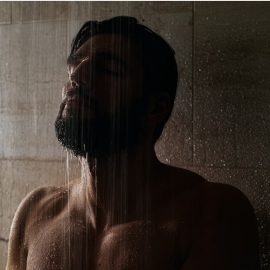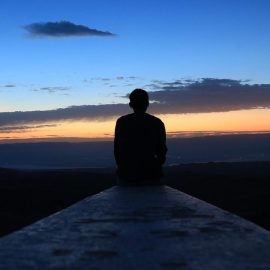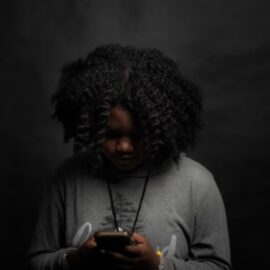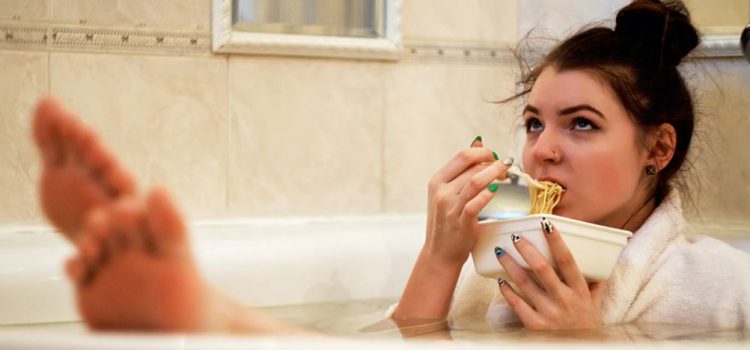
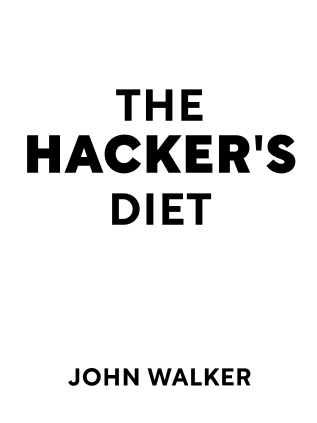
This article is an excerpt from the Shortform book guide to "The Hacker's Diet" by John Walker. Shortform has the world's best summaries and analyses of books you should be reading.
Like this article? Sign up for a free trial here .
Do you feel the urge to keep eating even if you don’t feel hungry anymore? Why do you think that is? Why does it seem like other people have natural limits and you just can’t stop?
In his book The Hacker’s Diet, John Walker introduces the concept of the “eat watch.” Some people’s eat watch tells them when they’ve eaten enough and when to stop. However, some people have broken their eat watches which is why they don’t alert them when they’re eating over the limit.
Keep reading to learn what to do if your eat watch is broken.
The Hacker’s Diet: Eat Watches
Wouldn’t it be great to have a watch that tells you when to eat and when to stop? When it says EAT, you can eat. It’d monitor what you’re eating, track calories for you. Then when it figures out you’ve had enough calories for the meal to keep your weight, it says STOP, and you stop eating. The Eat Watch would be smart enough to keep you at your daily calorie limit for your ideal weight.
Some people are born with a natural, built-in eat watch that works perfectly. Let’s call this type of person Skinny Stable Sam. They eat only the amount needed to maintain their thin bodies, for their entire life. If they eat less than what they burn, they get hungry and they eat. If they overeat in a meal, they feel uncomfortable and take longer to get hungry again, plus they eat less in a later meal. Their point of discomfort and satiety is set precisely at what their body needs.
If you’re overweight, your Eat Watch is broken in a way that causes you to gain weight over time. Let’s say that your ideal weight requires 1600 calories.
- Instead, your Eat Watch is calibrated so that it’s set to 1800 calories. Eat fewer than these calories, and you feel intense hunger.
- Furthermore, if you eat more than 1800 calories per day, you may not feel the same discomfort as Skinny Stable Sam. Even after you’ve stopped being hungry, you might continue to eat without inhibition — possibly until the point at which your stomach is about to burst and you physically can’t eat any more. If you’ve felt utterly unable to resist food at the dinner table, this is you.
- Finally, if your Eat Watch were merely set to 1800 calories and stayed there forever, that’d be one situation — you’d be about 40 pounds over your ideal weight, and you’d be stable. But in reality, your Eat Watch adjusts upward as you gain more weight — soon it’s set to 1850 calories (50 pounds over ideal), then to 1900 calories, and so on. If you’ve gained weight steadily over time, this is what’s happening.
(Shortform note: Other factors also play a role in setting your Eat Watch. Sleep deprivation and high stress make you tend to eat more, as a biological response to a stressful dangerous environment. Addictive foods manipulate your Eat Watch and confuse you about the calorie content if what you’re eating.)
Unlike Skinny Stable Sam, you were born with a broken Eat Watch. But this doesn’t mean you’re screwed for life.
Many of us are born with bad vision, but you can get glasses to correct your problem. If you have a broken Eat watch, you can build your own artificial one, by tracking your weight and calories.

———End of Preview———
Like what you just read? Read the rest of the world's best book summary and analysis of John Walker's "The Hacker's Diet" at Shortform .
Here's what you'll find in our full The Hacker's Diet summary :
- An engineer’s approach to weight loss
- Why losing weight is so hard even though it's so simple
- What you have to do to maintain your ideal weight for the rest of your life

